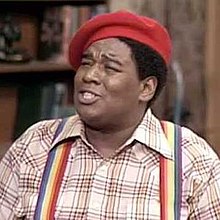 |
| Appeals are not reruns. But Fred Berry is Rerun. |
Last Friday, retired 4/2 Justice Jeffrey King published a DJ article titled It's Inevitable That Errors Will Be Made At Trial, addressing "the risks and costs involved in the appellate process, what to look for in choosing a mediator and how best to prepare for the process."
Also in today's DJ, Ben Feuer's Appellate Zealot's column presents Is Dicta Binding Precedent in the 9th Circuit? He explains:
In United States v. Johnson, the court held that a "reasoned" and "published" judicial ruling on any issue "germane" to an appeal "becomes the law of the circuit, regardless of whether doing so is necessary in some strict logical sense." 256 F.3d 895, 914 (9th Cir. 2001). This rule means an opinion may have significantly more precedential effect coming out of the 9th Circuit than the same opinion would have coming out of any other federal or state court. Indeed, the so-called "well-reasoned dicta" rule is so divergent from most historical understandings of dicta that at least one out-of-circuit federal appellate judge, Pierre Leval of the 2nd Circuit, has publicly called the 9th Circuit's standard unconstitutional.Over at the NLJ, see Where Federal Agencies Find the Most—and Least—Respect in Circuit Courts, which notes:
The U.S. Court of Appeals for the Ninth Circuit may not be the best place for an agency to test its interpretation in an enforcement action. The study found that the circuit was the least deferential of the 13 federal appeals courts. The Sixth Circuit is the most deferential. In the Eighth Circuit, win rates for agencies were about the same with or without deference.


